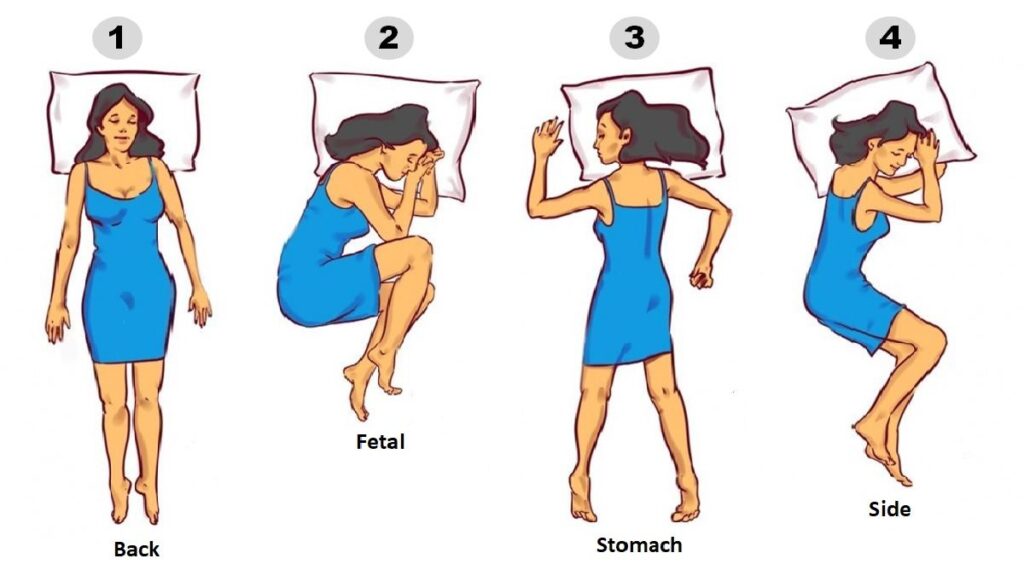Understanding Sleep Patterns
Sleep is a fundamental aspect of human health, yet many individuals overlook its importance. Understanding one’s sleep patterns can lead to improved well-being, increased productivity, and better overall health. Sleep patterns refer to the various stages and cycles of sleep that individuals experience throughout the night. These cycles can be influenced by numerous factors, including lifestyle, stress levels, and even diet.
In recent years, research has shown that recognising and understanding personal sleep patterns can be beneficial. By identifying how one sleeps, it becomes easier to make informed decisions about lifestyle changes that can enhance sleep quality. This is where a sleep type test can prove invaluable.
What is a Sleep Type Test?
These tests often categorise sleep types into different groups, such as early birds, night owls, and those who fall somewhere in between. Each type has distinct characteristics and tendencies that can affect daily life. Understanding one’s sleep type can lead to personalised strategies for improving sleep.
A sleep type test is a tool designed to help individuals identify their unique sleep patterns. By answering a series of questions about sleep habits, preferences, and lifestyle, individuals can gain insights into their sleep type. This information can guide them in making adjustments that promote better sleep quality.

Why is it Important?
Recognising sleep types is crucial for several reasons. Firstly, it allows individuals to align their daily activities with their natural sleep cycles. For example, night owls may find it challenging to function during early morning meetings, while early birds might struggle to stay awake during late-night events.
Moreover, understanding sleep patterns can aid in identifying potential sleep disorders. If someone consistently feels fatigued despite adequate sleep, it may indicate an underlying issue that needs addressing. By taking a sleep type test, individuals can take the first step towards better sleep health.
Additionally, the impact of sleep on mental health cannot be overstated. Poor sleep quality has been linked to increased levels of anxiety and depression. By understanding their sleep patterns, individuals can not only improve their physical health but also enhance their emotional resilience. For instance, someone who identifies as a night owl may benefit from adjusting their evening routine to include calming activities that promote relaxation before bed, thereby reducing anxiety levels and improving overall mood.
Furthermore, sleep plays a vital role in cognitive function and memory consolidation. During sleep, the brain processes information and solidifies memories from the day. Those who understand their sleep type may find it easier to optimise their study or work schedules, ensuring they are well-rested during critical tasks that require focus and creativity. By aligning their most demanding activities with their peak alertness times, individuals can maximise their productivity and efficiency throughout the day.
The Science Behind Sleep Patterns
Sleep is a complex biological process governed by various physiological mechanisms. The body undergoes several stages during sleep, including light sleep, deep sleep, and REM (rapid eye movement) sleep. Each stage serves a specific purpose, contributing to physical and mental restoration.
Research indicates that the average adult requires between seven to nine hours of sleep per night for optimal functioning. However, individual needs can vary significantly. Factors such as age, lifestyle, and overall health can influence how much sleep one requires.
Stages of Sleep
Understanding the stages of sleep is essential for recognising sleep patterns. The sleep cycle typically lasts about 90 minutes and includes the following stages:
- Stage 1: This is the lightest stage of sleep, lasting only a few minutes. It is the transition period between wakefulness and sleep.
- Stage 2: This stage marks the onset of true sleep. Heart rate slows, and body temperature decreases.
- Stage 3: Also known as deep sleep, this stage is crucial for physical recovery and growth. It is during this stage that the body repairs tissues and strengthens the immune system. Read more about immune system on https://www.health.harvard.edu/staying-healthy/how-to-boost-your-immune-system
- REM Sleep: This stage is characterised by rapid eye movement and increased brain activity. It is essential for cognitive functions, including memory and learning.

Circadian Rhythms
Circadian rhythms are the natural processes that regulate the sleep-wake cycle, typically following a 24-hour cycle. These rhythms are influenced by external factors such as light and temperature. Disruptions to circadian rhythms, such as shift work or irregular sleep schedules, can lead to sleep disorders and affect overall health.
Understanding one’s circadian rhythm can help in determining the best times to sleep and wake. For example, individuals who are naturally inclined to sleep later may benefit from adjusting their schedules to align with their body’s natural tendencies.
Taking the Sleep Type Test
Embarking on the journey to understand sleep patterns begins with taking a sleep type test. These tests are typically straightforward and can be completed in a short amount of time. They often consist of questions regarding sleep habits, lifestyle choices, and preferences.
Upon completion, individuals receive insights into their sleep type, along with tailored advice on improving sleep quality. This personalised approach can lead to significant changes in how one feels during the day.
What to Expect
When taking a sleep type test, participants can expect a series of questions that may cover various topics, including:
- Typical sleep duration
- Preferred sleep and wake times
- Sleep environment
- Daily energy levels
These questions help create a comprehensive picture of an individual’s sleep habits, allowing for accurate categorisation into one of the recognised sleep types.
Interpreting Your Results
After completing the test, individuals will receive results that outline their sleep type. Each type comes with specific characteristics and recommendations. For instance, early risers may be advised to maintain a consistent morning routine, while night owls might benefit from strategies to manage their energy levels throughout the day.
Understanding these results is crucial for implementing changes. If, for example, the test indicates that an individual is a night owl, they may need to consider adjusting their work schedule or incorporating relaxation techniques before bedtime to facilitate better sleep. Click here to find more about relaxation.
Improving Sleep Quality
Once individuals have identified their sleep type, the next step is to implement strategies for improving sleep quality. There are numerous approaches to achieving better sleep, and what works for one person may not work for another. However, several general tips can be beneficial for most individuals.
Creating a Sleep-Friendly Environment
The sleep environment plays a significant role in the quality of sleep. A comfortable mattress, appropriate bedding, and a cool, dark room can enhance sleep quality. Additionally, minimising noise and light can create a more conducive atmosphere for rest.
Consideration should also be given to electronic devices. The blue light emitted by screens can interfere with the body’s natural sleep cycle. Limiting screen time before bed can help signal to the body that it is time to wind down.
Establishing a Sleep Routine
Consistency is key when it comes to sleep. Establishing a regular sleep routine can help regulate the body’s internal clock. Going to bed and waking up at the same time each day, even on weekends, can reinforce healthy sleep patterns.
Incorporating relaxation techniques, such as reading, meditation, or gentle stretching, can also signal to the body that it is time to prepare for sleep. These activities can help reduce stress and promote a sense of calm.
Conclusion
Understanding sleep patterns is a vital aspect of maintaining overall health and well-being. By taking a sleep type test, individuals can gain valuable insights into their unique sleep habits and make informed decisions to enhance their sleep quality. Recognising the importance of sleep and implementing strategies to improve it can lead to increased energy levels, better focus, and an overall improved quality of life.
As research continues to evolve, the significance of personalised sleep strategies will only grow. Embracing the knowledge gained from a sleep type test can be the first step towards a healthier, more rested life.

